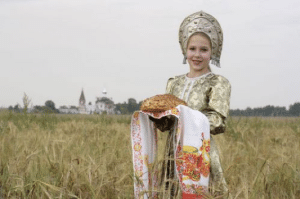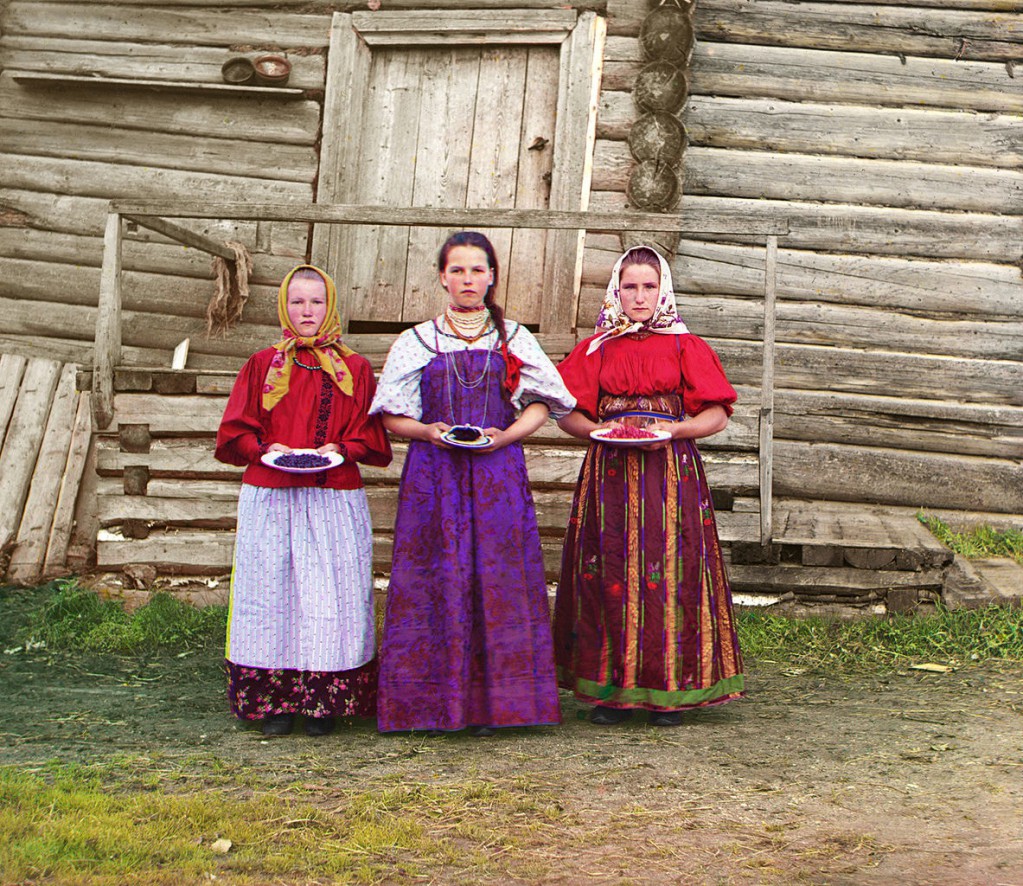Many well-known people from various countries have acknowledged that Russia and the Russians have unique features that can be difficult to explain. For example, British Prime Minister Winston Churchill once said that “Россия – это головоломка, завернутая в тайнувнутри загадки” (Russia is a riddle wrapped in a mystery inside an enigma). A part of this mystery is the “Russian soul,” which Russian poets, writers, philosophers, and scholars have been trying to define for centuries.
The concept is, of course, a mixture of ideals and stereotypes. It is something that is different for each individual but also something that helps bind the Russian nation together – a common cultural narrative and a common explanation for who the Russians are and why Russia is as it is and why Russians are as they are.

Perhaps the most powerful belief is that Russia is comprehensible only to those that live there. One of the most successful in his attempts to describe the Russian soul was nineteenth-century author Fedor Tyutchev, who wrote a famous poem about it, often quoted by Russians to describe their country:
Умом Россию не понять,
Аршином общим не измерить:
У ней особенная стать –
В Россию можно только верить.
(literally translates as:
Russia cannot be understood with the mind alone,
No ordinary yardstick can span her greatness:
She stands alone, unique –
In Russia, one can only believe.)
The concept of the Russian soul is also heavily permeated in ideals. Many famous Russian writers, such as Tolstoy and Dostoevsky, describe an ideal of нравственное, героическоеповедение людей (people’s moral, heroic behavior), or освещают проблемыправедников и праведной жизни (tell of problems faced by righteous people and righteous lives). At the same time, Dostoevsky, Gogol, and many other writers depict the misery faced by poor people and life’s many injustices, expressing a неприятие зла инесправедливости (rejection of evil and injustice).
Yet the concept is also rooted in the practical and physical. Many scholars point out that the Russian soul was formed under the influence of Russia’s seemingly бескрайние просторы (unlimited space) and суровый климат (severe climate). In Russian, there are verbs that denote that space “stretches,” almost without any limits: простираться, тянуться. Philosopher Nicolai Berdyaev wrote in his book, Russia’s Destiny, that, on one hand,российское пространство определяет широту русского мироощущения (Russia’s space determines the breadth of Russians’ perception of the world) and, on the other hand, determines the бесформенность русской души (анархия) (shapelessness of the Russian soul (anarchy)). Because they live in such a vast land, Russians were long used to living with very little interaction with the government and generally living by their own wits or by village/community rules.
In terms of the severe climate, due to the short summer, Russians are used to чрезмерное кратковременное напряжение своих сил (working excessively hard for a short time) followed by a долгое время отдыхать (long period of relaxation). Although often that “relaxation” can be in close quarters, with few resources, and mandated by extreme weather. Likewise, in their behavior, Russians can demonstrate a lot of крайности (extremes), because the русская душа is a combination of pronouced, sometimes несовместимые (incompatible) character traits: доброта (kindness) and грубость (rudeness) or even жестокость (cruelty), and because it combines рационализм (rationalism) and фатализм (fatalism), and поверье (superstition/popular belief) with both практичность (practicality) and религиозность (spirituality).
Perhaps also due to the extreme weather and lack of regulation, another peculiar feature of the Russian soul is непредсказуемость (unpredictability). The famous French writer Maurice Druon said that «русская душа принимает все, что с ней происходит, и способна терпеть очень много и долго. Но в один прекрасный момент она взрывается, происходит революция, а потом душа снова попадает в свое русло и продолжается обычное течение жизни» (“The Russian soul accepts everything that happens to it, and it is capable of enduring a lot for a long time. But at some point, it explodes, a revolution occurs, and then the soul gets back on track, and the usual routine of life continues”).
This also manifests itself positively in a unique Russian phenomenon that is very difficult to translate into English: знаменитый русский «авось» (Russians’ notorious blind trust in sheer luck). Когда положение становитсяпрактически безвыходным, когда исчерпаны всеразумные способы решения проблемы, русскийдействует на авось и часто добивается успеха (When one ends up in a deadlock, when all reasonable ways to solve a problem are exhausted, a Russian puts his faith in sheer luck and often succeeds). Because of the dominance of both unpredictablity and luck in the Russian psyche, Russians are also prone to отсутствие планирования (a lack of planning) and simply acting based on instinct.
Although the Russians value their vast lands and know that they number in the millions, Russians generally prefer to keep their close social circles small. They like deep affection in friendship; in friendship, a Russian person will выворачивать друг другу душу наизнанку (lay bare his soul before another person). This explains the roots of ностальгия (nostalgia) experienced by Russians in other countries: they suffer because of a потребность вобщении, родственной душе (need for communication, for a kindred spirit). At the same time, there is a spiritual and almost physical connection to the land of the родина (homeland). Many Russian abroad will remark that на родину тянет всегда (they feel perpetually “pulled” towards the homeland).
Emotion, then, is seen as something to give only to special people. Thus, Russians do not appear like they are kind or happy to strangers on the street or in public places because they don’t smile. Улыбка не является признаком вежливости (a smile is not a sign of politeness) in Russian culture; rather, a smile should reflect genuine happiness and a relaxed face is the default. Russian culture has a proverb that expresses a negative attitude towards laughing, which does not exist in most other cultures: Смех без причины – признакдурачины (Laughing without any reason is the sign of an idiot).
Another major component of the Russian national identity is that they are able to выживатьв суровых условиях (survive in severe conditions) without much food. Russians are known for their самопожертвование (self-sacrifice), they are able to пожертвовать своейжизнью во имя других (sacrifice their lives for others), which has allowed Russia to be victorious in wars against powerful enemies. Especially strong is the Russian concept of “наш.” Although the Russian language often avoids assuming ownership, which one can argue also reduces personal responsibility, when a Russian refers to a group of people as “наш” (ours), that means that anything must be done for those people. Many times, this will be one’s immediate family and close friends, but often, especially during times of war, “наш” comes to encompass all one’s countrymen.
Much of this boils down a sense of individualism within the Russian identity. An interesting and often difficult to understand aspect of Russians is their неприятие каких-либо рамок иограничений (rejection of any limits and restrictions). The only limit they accept is собственная совесть (their own conscience).





